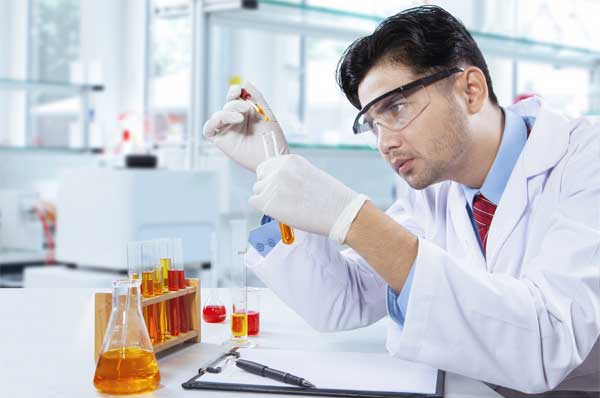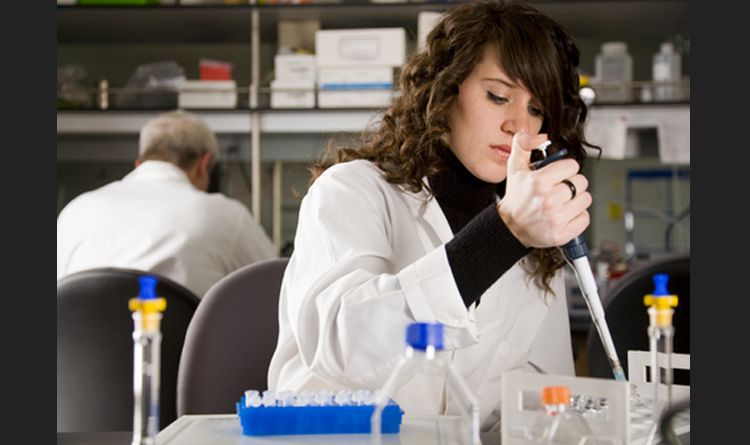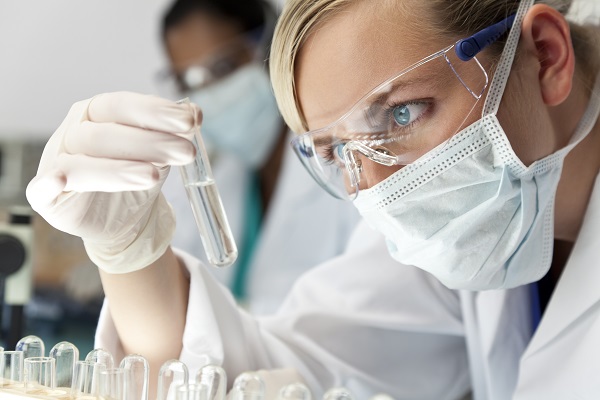Analytical Quality Chemist

Life Sciences is a diverse and vibrant global industry encompass a wide range of activities.
The activities range from drug discovery, research & development and manufacture of therapeutics, medical devices, and diagnostics and platform technologies.
The increasingly ageing global population and their demand for improved longevity offers a very strong growth potential to Life Sciences industry.
The life sciences industry in India is huge and includes pharmaceutical companies, biopharmaceutical and contract research organization (CROs) with the support of specialized suppliers and organization.
The pharmaceutical industry develops, produces, and markets drugs for use as medications.
Drug Regulatory Authorities for Life Sciences Sector
Life sciences domain cater to lives of humans, hence they come under rigorous regulatory laws.
The Regulatory Affairs departments of life-science companies ensure that the company is complying with all the applicable regulations for the product discovered, produced and supplied by that company.
The regulatory bodies of India is the Central Drugs Standard Control Organization
Medicines in India are regulated by Central Drugs Standard Control Organization (CDSCO), under Ministry of Health and Family Welfare, Headed by Directorate General of Health Services.
CDSCO regulates the Pharmaceutical Products through DCGI – Drugs Controller General of India at Chair.
Pharmaceutical products are regulated under the Drugs & Cosmetics Act, 1940, to ensure drugs manufactured, imported, sold and distributed are safe and efficacious.
The Central Drug Standards and Control Organization (CDSCO), which is under the aegis of the Ministry of Health and Family Welfare prescribes standards and measures for:
• Ensuring the safety, efficacy and quality of drugs, cosmetics, diagnostics and devices in the
Country
• Regulates the market authorization of new drugs and clinical trials standards
• Supervises drug imports and approves licences to manufacture the above mentioned products
Quality Control Chemist
Drugs must be marketed as safe and therapeutically active formulations whose performance is consistent and predictable. New and better medicinal agents are being produced at an accelerated rate. At the same time more exacting and sophisticated analytical methods are being developed for their evaluation.
The main function of quality control is to test and verify the product quality against the predefined standards. Therefore, quality control is the most important part of the pharmaceutical industry.
Analytical Chemists has the most important duty to examine the QUALITY of the product- be it raw material, semi-finished or the final product reaching the market. There are some analytical chemists who specialize in developing new analytical methods and new techniques for carrying out work efficiently. Their area of research has wide applications in numerous fields like pharmaceuticals, forensics, food safety, pollution control, and many others.
What does an Analytical Chemist do?
In today’s era, the analytical chemist has a significant role, and to carry that role appropriately, they need to have the required skills and stick to an ethical code of conduct.
Many of the requirements are listed below:
- Plan and execute all the physical and chemical testing as per laboratory SOPs
- Work with analytical techniques and instrumentation, such as high-performance liquid chromatography (HPLC), Gas chromatography (GC), ion chromatography, spectroscopy (infrared and ultraviolet), etc.
- Testing of known or unknown compounds, carry out titrations, water analyses etc.
- Adherence to timelines by utilizing testing expertise, statistical tools, and possessing advanced chemical knowledge
- Identify potential challenges, set error limits, and proactively plan for resolution
- Ensure that all reagents and solutions are prepared and utilized according to SOPs
- Calibrate the instruments and validate the methods as well as instruments for accurate, precise, and reliable work
- Analysing and interpreting results in proper context
- Following with the scientific and technical recent advancements
- Ensuring that health and safety standards are properly followed
An analytical chemist at the senior or manager position is required to have these or similar additional components:
- Apply and liaise understanding of chemistry to business units, research/scientific staff, and the public
- Improve technical leadership by developing new analytical methods and training the team, as well as internal business partners and external customers
- Prepare documentation for product license
- Regularly keep a track of process improvements and data quality to help the team meet business and scientific benchmarks
- Create and deliver presentations to a workgroup(s), customers, and external business partners
- Establish a leadership portrayal in industry-related activities and earn global recognition
Common Skill Sets
- HPLC
- GC
- FTIR
- Validation and Calibration
- Calculus
- GMP
- UV-VIS, IR
- Creative and logical thinking
- Computational skills (Microsoft Office)
- Written and verbal (explanatory communication)
- Meticulous
Analytical chemist education requirements OR How to become an Analytical Chemist
To obtain an entry-level position, Analytical chemists require a bachelor’s degree in chemistry, Pharmacy, BSc, or any relevant subject such as chemistry, applied/analytical chemistry, or biochemistry. Many go for extensive lab experience via work-study programs or internships.
Some opt for the role of laboratory technician which focuses more on practical experience rather than academic qualifications.
To advance, most achieve a master’s degree and Ph.D. to obtain higher positions like Managerial.
Work experience is also very crucial for excelling in this field.
Overall, one requires a strong science-based degree along with good technical skills and a logical mind.
Analytical Chemist careers
Analytical chemists can be employed both in the private sector as well as public sectors such as industry, academia, and government agencies.
Where does an Analytical Chemist work?
- Analytical research and development work in laboratories
- Drug formulation and development
- Chemical or forensic analysis
- Process and product development
- Product validation
- Quality control
- Toxicology
- Verify compliance with regulatory requirements
- Work in marketing and law
- Teaching
- Food and Agriculture
- Oil and Petroleum
- Design instruments used in analytical analysis
Chemical Analyst Salaries (In India)
Average Base Pay – Rupees 554K annually
Where, Lowest – 242K and Highest – 786K
| Job Titles/Positions | Salary (in rupees) |
| Research Analytical Chemist | 22K |
| Senior Analytical Chemist | 40K |
| R&D Chemist | 30K |
| Analytical Scientist | 70K |
(As per Glassdoor analysis)
Quality control chemist career paths
With a suitable Quality control chemist degree, skills, and experience, one can prepare for the career transitions into related roles namely:
| Career transition roles | Years of work experience | Average annual salary (in dollars) |
| Formulation Scientist | 2 – 4 | 60,832 |
| Materials Scientist | 5 – 7 | 67,970 |
These roles can lead to different career paths for a quality control chemist.
Some of the Quality control chemist career paths:
Figure: Career progression of a Quality control chemist (Image modified from https://www.zippia.com/quality-control-chemist-jobs/#career-paths)
Chemical Analyst Demands
As per one of the staffing and recruiting company of the US:
Analytical chemists on average earn around $60,304 annually. This profession is expected to earn roughly between $45,000 to $79,000 a year. This signifies that in terms of earnings, the highest position analytical chemists make a difference of $34,000 more than a fresher analytical chemist.
| Facts about Chemists and Materials Scientists | |
| Number of job opportunities, 2019 | 93,700 |
| Growth rate | 5% (quicker than the average for other occupations) |
| Employment projections | 4,300 |
(Table adapted from U.S. BUREAU OF LABOR STATISTICS)
Sources:
- https://www.acs.org/content/acs/en/careers/college-to-career/areas-of-chemistry/analytical-chemistry.html
- https://www.environmentalscience.org/career/analytical-chemist
- https://www.prospects.ac.uk/job-profiles/analytical-chemist
- https://www.zippia.com/analytical-chemist-jobs/what-does-an-analytical-chemist-do/
- https://www.glassdoor.co.in/Salaries/india-analytical-chemist-salary-SRCH_IL.0,5_IN115_KO6,24.htm
- https://www.glassdoor.co.in/Salaries/quality-control-chemist-salary-SRCH_KO0,23.htm





Thanks for sharing amazing knowledge.